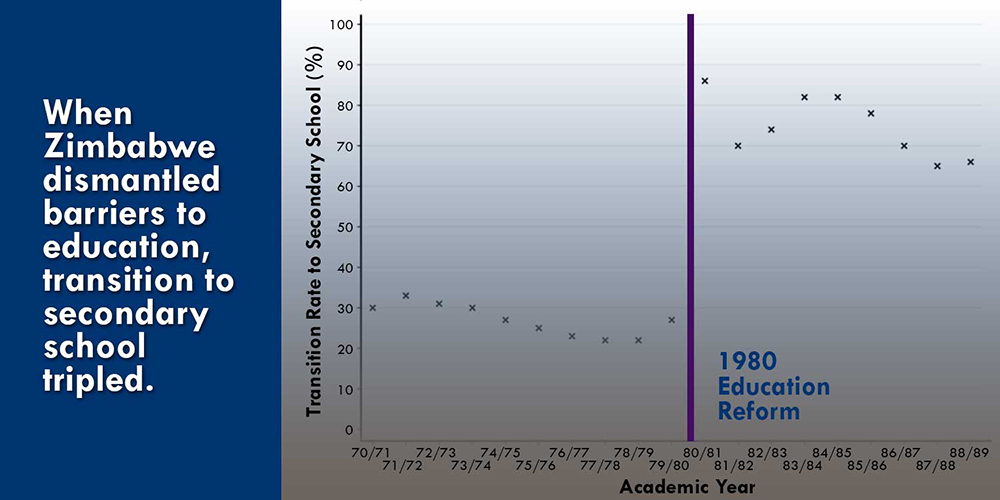Early-Life Access to Food Stamps Has Long-Run Benefits for Children’s Health
In the United States, 25 percent of all children and nearly 15 percent of the total population received food stamp benefits in 2011. The program is hotly debated among politicians—there have been several cuts to the program in recent years, and more cuts are currently proposed, including cuts specifically targeted at documented immigrants.
Despite its importance and uncertain future, there is very little evidence on the effect of the Food Stamp program on its beneficiaries. In a new JHR paper, Chloe N. East investigates the effects of restrictions on immigrants’ access to Food Stamps.
The Personal Responsibility and Work Opportunity Reconciliation Act (PRWORA) made many documented immigrants ineligible for food stamps in 1996. In subsequent years, several states and eventually the federal government restored eligibility. Prior to PRWORA, children of immigrants made up 20% of all children receiving food stamps and 30% of all children in poverty. When immigrant families were eligible, their participation in the Food Stamp program rose by 50%.
East looked at the effect of having access to food stamps before age five among U.S.-born children of immigrants. The findings indicate that access to food stamps improves children’s health at ages 6–16 across a range of health measures, including parent-reported health and developmental health conditions (e.g., ADHD). Specifically, one additional year of early life access to food stamps decreased the likelihood that children are reported in bad health by 5%.
What do these results contribute to ongoing debate about the Food Stamp program? According to East, “These results reinforce the idea that changes in nutrition and resources in early life can have lasting impacts on children’s well-being. The results also provide some of the only experimental evidence about the effects of the modern Food Stamp program, which is crucially important as policymakers actively debate food stamp policy.”
Read the full study in The Journal of Human Resources: “The Effect of Food Stamps on Children’s Health: Evidence from Immigrants’ Changing Eligibility” by Chloe N. East.
***
Chloe N. East (@ChloeEast2) is an assistant professor of economics at the University of Colorado Denver.
This research was made possible through generous funding from the RIDGE Center for Targeted Studies Doctoral Dissertation Grant, the Bilinksi Foundation, and the Office of Research Services at UC Denver.
—
Notes: Statistic of 25 percent of all children and nearly 15 percent of the total population receiving food stamp benefits in 2011 from Moffitt, Robert A. 2013. “The Great Recession and the Social Safety Net.” Russell Sage Foundation and the Stanford Center on Poverty and Inequality.




